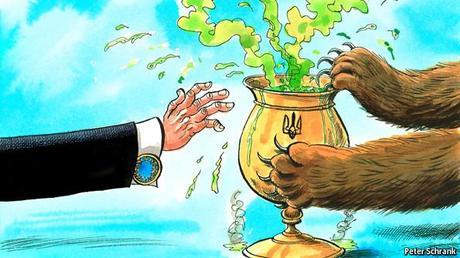
IN JUNE 1709 Peter the Great fought a decisive battle against the Swedish king, Charles XII, at Poltava, in what is now Ukraine. Ukrainians fought on both sides. Ivan Mazepa, a Ukrainian Cossack Hetman, had sided with Sweden in a quest for Ukrainian independence. But the battle ended in Sweden’s defeat: Russia swept westward, dominated all of the Baltics and turned Poland into a satellite.Today’s Russia, which lavishly celebrates Poltava, cannot help but reflect that the same powers are trying to claw away Ukraine, a country of 46m people that has oscillated between Russia, Poland and Lithuania for much of the past 500 years, but which Russia considers to be its subordinate. Perhaps not since the end of the cold war has Europe hosted such a raw geopolitical contest.On November 28th the heads of European Union member states will gather in Vilnius, Lithuania’s capital, for a summit of the “Eastern Partnership”. This project was championed by Poland and Sweden in 2008 as a way of engaging with six former Soviet republics (Ukraine, Moldova, Belarus, Georgia, Azerbaijan and Armenia) after Russia blocked Georgia’s and Ukraine’s path to NATO. The success or failure of…
The Economist: Europe

